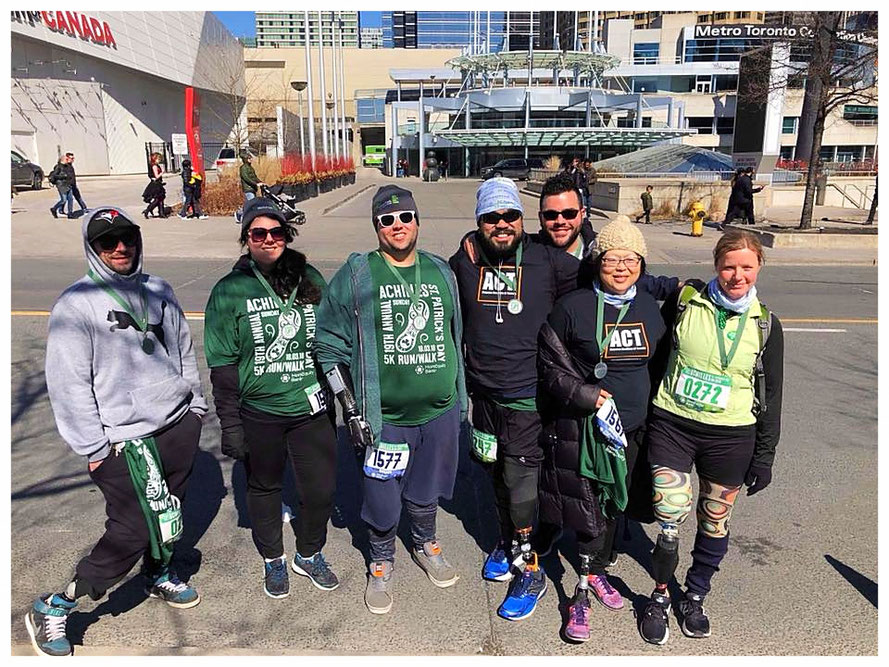
Giving Hope, Strength, And Confidence That There Is Life After Amputation
Limb loss is a traumatic experience, regardless of the reason for amputation, and can impact different areas of the amputee’s life. After amputation, there are many things amputees cannot control - when to get the first socket, triggers of phantom pain, the number of ply socks required for comfort, and so on. But feeling alone in the journey should not be one of them. For me, this is something I can control and I choose to do something about.
Finding Like-Minded Amputees
A few months after I was released from the hospital, I started realizing that I was only seeing other amputees when I was in rehab. More importantly, I was only normalising my amputation when I was in a rehab setting. I didn’t like feeling “normal” only when I was in rehab. So I became determined to live as active and as “normal” as I could outside of rehab, and I knew finding like-minded amputees was key.
Using Social Media To Get Started
It proved to be difficult at first, but any amputee like me will tell you - difficulty is something we rise above. I started a Facebook page in hopes of attracting amputees who were looking for a local peer support group. I recruited a fellow amputee to join my group, and she started helping me promote the group where we did our rehab. While she was doing the “leg” work at the rehab centre, I was busy on other social media platforms. I already had a following on Instagram and Twitter, so I used those platforms to drive traffic to the group. Through these platforms, I met an upper-limb amputee who was also just looking to talk to another amputee outside of the hospital setting. This meeting confirmed that I was on to something. I became even more determined to form a peer support group locally, and so the Amputee Coalition of Toronto (ACT) came to fruition.
Amputee Coalition of Toronto - Support, Advocacy, And Empowerment Through Social Events
A key focus of ACT is to promote amputee active living. Our members have different levels of amputation, recovery, and activity, and their ages and personal journeys all vary. But the one thing we have in common is that we believe there is life after amputation.
Our first peer group meet-up was at one of the trendiest accessible cafés in the city. The goal was to be comfortable in numbers so that no one felt they were being singled out by stares. We were more concerned about talking to one another like any group of friends than looking to see who was staring at us. It was amazing to watch the group “normalise” in front of me - everyone just enjoyed themselves and we planned our next activity meet-up.
We’ve had a few meetings since our group began, including axe throwing and bowling, and even participating in the annual Achilles’ St. Patrick’s Day 5K Walk/Race.
Getting On With Life After Amputation
When I visit amputees, especially new ones, I am often asked if I was able to return to an active lifestyle post amputation. My answer is always “Yes, of course!” followed by “In fact, I can do more now than I could before.” I think this has to do a lot with my determination to find adaptive ways of doing things I want to do. But it also has to do with the influences of peers early in my journey; seeing them succeed gave me the realisation that there is life after amputation. And I want to do the same through ACT. I want my peers to see that “Yes, I can go bowling again!”, “Yes, I can participate in a race!”, and “Yes, I can go out and have a social life!”, and understand that our only limit is truly what we put on ourselves. My hope is that through ACT meet-ups, we can show others that there is life after amputation and that we don’t have to go through it alone.
Learn More About ACT
ACT is the only active peer support group in Toronto and the GTA, and meet-ups are held regularly each month. You can find us on the web and on Facebook. Come and join us. Or if you want to set up a similar group in your area and would like to talk to it, please feel free to contact me any time via mail.

Guest post by Aristotle Todd Domingo. Todd is the founder of the Amputee Coalition of Toronto – A local Toronto amputee peer support group dedicated to promoting an active lifestyle.